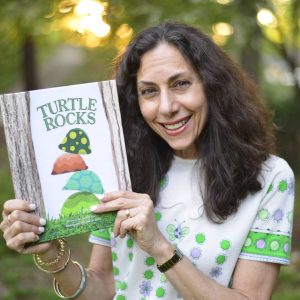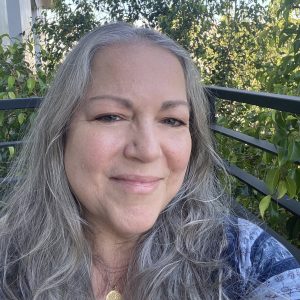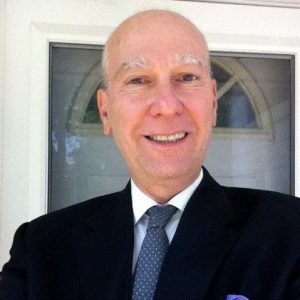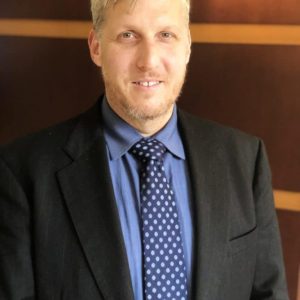Torah Commentary with Rabbi Laurence Rosenthal
Parshat Va'era - What's in a Name?!
By Rabbi Laurence Rosenthal

What should we do if we catch God in a lie? Maybe that's a bit harsh. I'll rephrase. What if we catch God sharing a mistruth? An inaccuracy? An incorrect retelling of events? We know that God carefully weighs the cost-benefit analysis of sharing the whole truth regarding the impending doom of the city of Sodom and Gomorrah with Abraham (see Genesis 18:17). Now, that is not lying, it's just withholding the truth. But what about the opening lines of this week's sidra (scriptural reading):
אֲנִי יְהוָֹה: וָאֵרָא אֶל־אַבְרָהָם אֶל־יִצְחָק וְאֶל־יַעֲקֹב בְּאֵל שַׁדָּי וּשְׁמִי יְהֹוָה לֹא נוֹדַעְתִּי לָהֶם:
I am "Yud-Hey-Vav-Hey" (the tetragrammaton), I appeared to Abraham, to Isaac and to Jacob by means of El Shaddai but my name "Yud-Hey-Vav-Hey" I did not make known to them. (Exodus 6:3)
Is that true? As my teacher, Dr. Richard Elliot Friedman, points out, God made known his name, "Yud-Hey-Vav-Hay," many times! (Gen 13:4; 15:2; 22:14,16; 26:22,25; 28:3). What is God trying to share by saying, "I didn't make known my name" when our patriarchs and matriarchs of Genesis seem to know it?
I believe it's not the name per se, rather it's the characteristic that was emblematic of the name. We expect different character traits or behavior from someone we might call doctor or officer versus those we call mom or daughter. It's not just the title but it's the behavior, presence and relationship that follows which really solidifies the title. Our matriarchs and patriarchs might have known the name "Yud-Hey-Vav-Hay," but their relationship with God was characteristic of the name El Shaddai.
So, what is the difference between the names?
El Shaddai:
Our Talmud offers a creative understanding of the name El Shaddai. Resh Laqish said: "What is it that is written: 'I am El Shaddai?' (Genesis 35:11) I am he who said to the world, 'Enough!'" (Tractate Hagigah 12a)
This is a play on words. "El," being one of the many names of God. "Sha," a prefix meaning "that." And finally, the word "Dai," made famous from the Passover song, Dayenu, meaning "enough." According to Resh Laqish, God is the One who saw the world coming into being and gave it its limits. Connected with this sugia (thematic chapter of Talmud) is an interesting analogy: the universe, unraveling like a ball of yarn rolling away from the center with no end to its roll, until God said, "Die!" This is the God known to our family in the book of Genesis. The creation story has its limits. God limits how much our matriarchs and patriarchs know about the Divine. God is cautious about sharing with Abraham the plan for Sodom and Gomorrah. God's presence comes and goes. Although God is the protagonist of the Book of Genesis, God's presence is limited. El Shaddai is the name of a limited, withheld deity.
Yud-Hey-Vav-Hay (the tetragrammaton):
The Book of Exodus reveals a different characteristic of God. One of awesome power and might, one of deep and limitless concern and love for God's people. A God who sees no limit in how to bring justice to the oppressed and downtrodden. The God of Exodus knows no bounds. Maybe this is the reason for the name shift. "Yud-Hey-Vav-Hey," might not be new in name but this is a new experience of God. Our tradition goes even further with this name of God, teaching us that the name itself is unpronounceable, unknown to our ears and lips. Its sound is truly limitless.
Might this be the aspect of God we are invited to see in this new book of the revelation, in the book of Exodus. A God without limits. A God whose compassion and love for us knows no bounds. A God that sees in us potential, brilliance and hope even when we fall into despair. Is it any wonder that we invoke "Yud-Hey-Vav-Hay" in every blessing we say throughout our day? Might this be a reminder that we must encounter each moment without limits, without restraint, with endless possibilities and unbound love and compassion.
Shabbat Shalom.






























